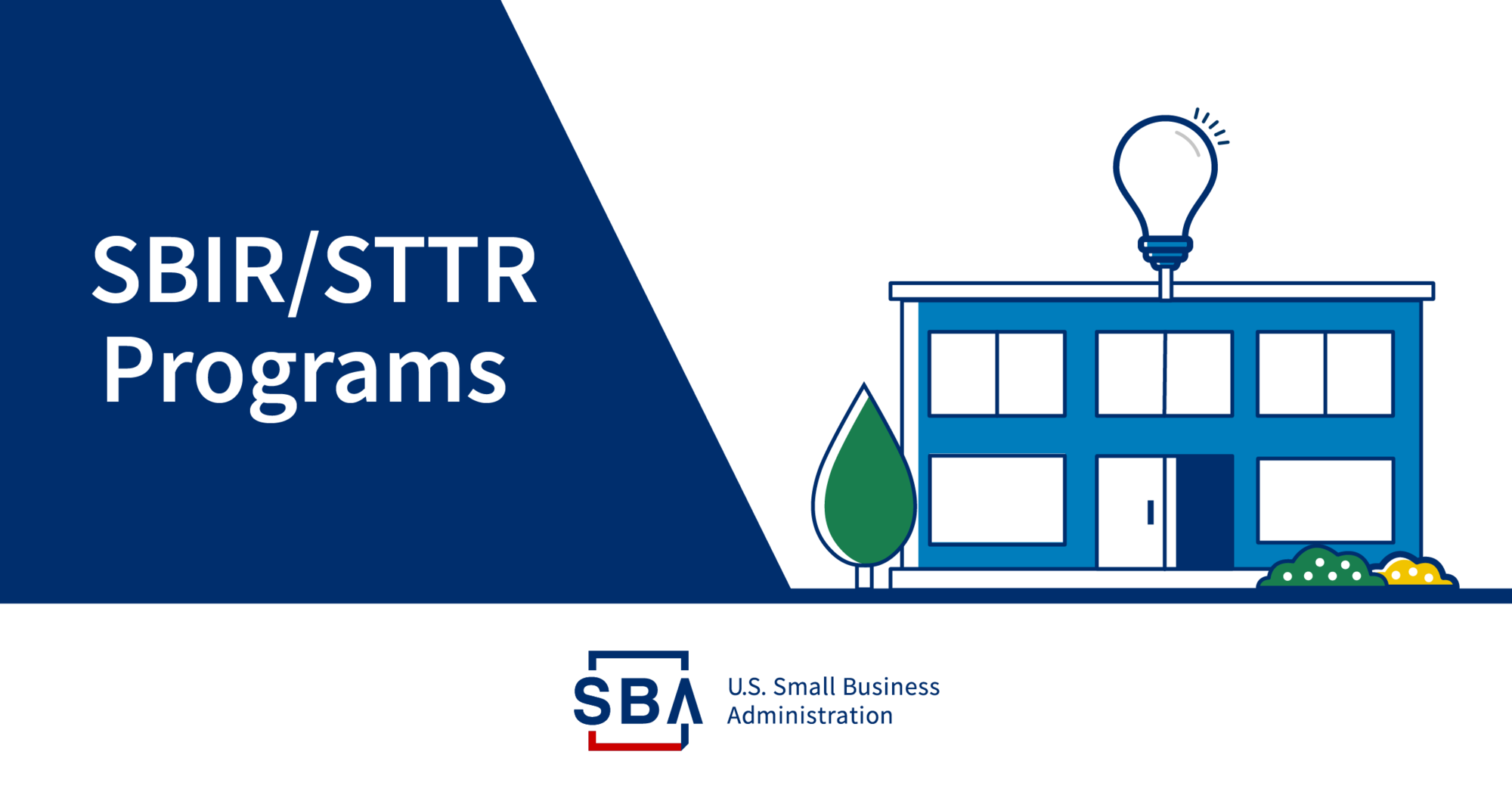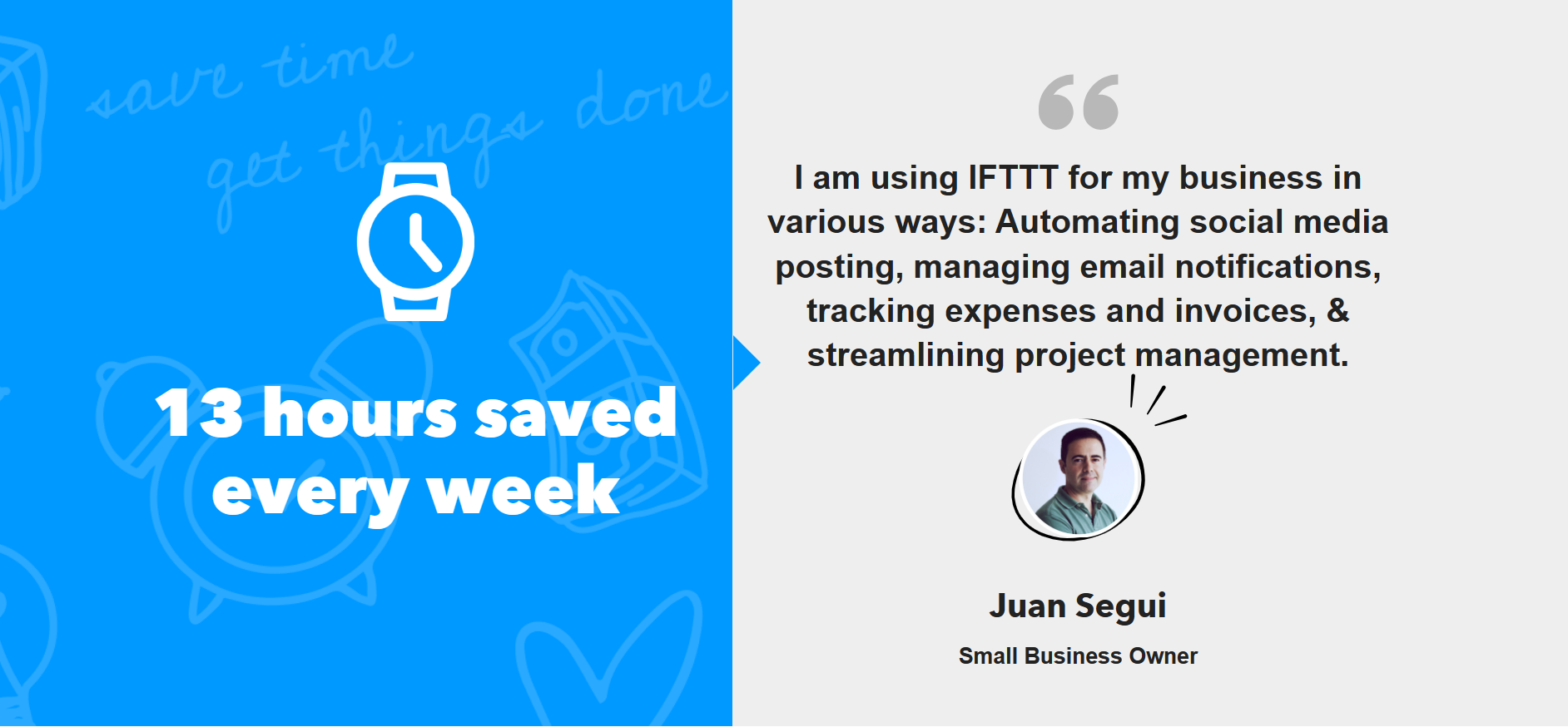So, you've decided to start your own small business. Congratulations! Starting a business is an exciting and fulfilling endeavor, but it can also be expensive. If you are reading this guide, you likely don't have millions of dollars in venture capital and angel investors lining up to support your business. Most people start their business with very little money, from the ground up.
Let us introduce small business grants - which are essentially how to get free money that you do not have to pay back! This sounds too good to be true, right? Wrong! Small business grants are very real and available for entrepreneurs just like you.
Before diving into the world of small business grants, it's important to understand what they are and how they work. In this guide, we'll break down the process of finding and applying for small business grants, as well as debunk any myths or misconceptions surrounding them. Finally, we'll present our automation platform IFTTT as the best way to keep your business growing in the background.
What is a small business grant?

A small business grant is a sum of money given to a small business to help it grow and thrive. Unlike a loan, a grant does not need to be repaid, making it an attractive option for business owners. Grants are typically provided by government entities, corporations, or non-profit organizations.
The key difference between grants and loans lies in repayment. While loans need to be repaid with interest over a period of time, grants are essentially free money. However, they come with their own set of requirements. For instance, the grantee may be required to match the funds or use them for specific purposes. Either way, grants are a great way to secure funding for your business without incurring debt.
Why should I try and get a small business grant?

There are many reasons why you should consider getting a small business grant. The most significant advantage is that grants do not need to be repaid, offering you a source of free money to grow your business.
Grants are an excellent way to fund growth and scale your impact without adding to your debt or giving away equity in your company. They can provide much-needed financial assistance to help your business get off the ground or expand into new areas.
Furthermore, grants can increase your business's visibility. Winning a grant can enhance your reputation and credibility, attracting more customers, partners, or even future investors.
Eligibility criteria for small business grants
Eligibility criteria for small business grants can vary widely depending on the grant provider, but there are several common requirements:
Business size: Many grants are designed specifically for small businesses. Definitions of "small" can vary, but often they refer to businesses with fewer than 500 employees.
Operational duration: Some grants require your business to have been operational for a certain period of time, often at least a year, to ensure stability and viability.
Location: Many grants are location-specific, meaning your business must operate in a particular city, state, or country to be eligible.
Industry: Some grants are industry-specific, aimed at businesses within sectors like technology, healthcare, or education.
Use of funds: Grant providers often stipulate how the funds must be used. This could range from research and development to business expansion or job creation.
Financial need: Some grants require demonstration of financial need or proof that the grant will significantly impact your business's success.
These are by no means concrete requirements, many grants have additional criteria, so it's crucial to research each grant thoroughly before applying.
Where to find small business grants

Before deciding which grants you are interested in applying for, it is a good idea to understand the different types of business grants available to you. Generally, there are four categories: federal, state, local, and private grants. Let's talk about each option.
Federal grants are funds provided by the U.S. government and are usually designed for specific purposes such as research or community development. A prime example is the Small Business Innovation Research (SBIR) Program, which funds small businesses in technology fields that will meet federal research and development needs.
State grants are provided by individual state governments, while local grants come from city or county governments and are typically designed to support local businesses and stimulate economic growth within a specific geographical area. These can be especially helpful for small businesses, as they may have less competition than federal grants.
Finally, private grants are gifted by private corporations, foundations, or nonprofit organizations. They can range from small grants offered by local businesses to larger grants from national corporations. For example, FedEx has a Small Business Grant Contest where businesses have a chance to win up to $50,000.
How to apply for small business grants

Here's a step-by-step guide on how to apply for small business grants. Don't feel like you need to follow these directions perfectly, but rather use this as a general overview of the process.
Step 1: Identify suitable grants
Look for grants that align with your business. These are the federal, state, local, and private grants discussed earlier. You can search for these on websites such as the U.S. Small Business Administration (SBA), grants.gov, and your local Minority Business Development Agency (MBDA) center.
Step 2: Gather necessary documents
Typically, grant applications require a detailed business plan, financial statements, tax returns, and resumes of key team members. Make sure you have these documents ready before you start the application process.
Step 3: Write a detailed proposal
Your proposal should clearly explain what your business does, how the grant funds will be used, and how this will benefit your business and community. Be as specific and quantifiable as possible, providing data and evidence where you can.
Step 4: Submit application
Follow the instructions provided by the grant provider to submit your application. Ensure that you meet all deadlines and requirements.
Tips for an Impressive Application:
Be thorough: Make sure you answer all questions in the application fully and accurately.
Proofread: Spelling and grammar errors can make your application look unprofessional. Have someone else review your application before you submit it.
Be realistic: Don't overstate your business's potential. Grant providers want to see that you have a sound, realistic plan for using the funds.
Remember, applying for grants is a competitive process. Don't be discouraged if you don't get a grant on your first try. Keep refining your proposal and applying to different grants.
Keeping your small business running with IFTTT

Small business grants can provide a significant financial boost, but it's crucial to continue fostering growth and efficiency within your business throughout the process. One way to do this is by using IFTTT (If This Then That) -- our web-based service that allows you to create applets that automate tasks between over 800 different apps or devices.
For small businesses, this means streamlining processes and saving time by creating applets that connect your favorite business apps. For example, you can create an applet that automatically sends a thank you email to new customers or adds customer information from Google Sheets into your email marketing platform.
Read on to hear about our mission and our top picks for small business automations with IFTTT.
What is IFTTT?
IFTTT, an acronym for "If This Then That," is our free web-based service and mobile app designed to boost productivity by automating tasks. It works by creating connections between popular apps and services, allowing them to work together seamlessly.
The basic idea behind IFTTT is to create "applets" or sets of instructions that trigger when certain conditions are met. This can be turning on the lights automatically when you enter your house, for example.
Founded in 2011, IFTTT has been used by over 25 million individuals to automate both business and home tasks, saving time and increasing efficiency. It's commonly used to connect disparate services and systems, making all products and services work well together in a way that instills user confidence. Best of all, it's free and only takes a couple of minutes to set up.
The essential small business Applets with IFTTT

Add new leads from Facebook Lead Ads to Google Ads customer lists
Give yourself the best chance to earn people's business by targeting them with ads across multiple channels. When you get a new lead from Facebook Lead Ads, this Applet will automatically add them to a Google Ads custom list.
Create Google Contacts for new Acuity Scheduling appointments
Don't let any contacts slip through the cracks with this Applet. When someone schedules an appointment with you, this Applet will automatically add them to your Google Contacts.
AI generated tweets for your Blog posts
Long gone are the times when you had to write numerous tweets for your latest blog post. When you publish a new post, IFTTT will automatically generate optimized 140-character posts to share on Twitter.
To enable these Applets and millions more (yes, millions), try IFTTT today for free!

